Beneficiary Well-Being Trusts under Delaware’s Section 3325
Integrating Wealth, Well-Being, and Family Governance (Part 1 of 2)
Rod Zeeb & Lori Coonen
In 2024, Delaware’s innovative legal framework for trusts was expanded under the Delaware Trust Act to introduce a specific focus on beneficiary ‘well-being.’ Section 3325 of this Act outlines principles for Beneficiary Well-Being Trusts, which allow trustees to consider a beneficiary’s overall life quality—not just their financial status—in their administration and distribution decisions. This concept reflects a historical perspective of wealth that emphasizes well-being, one that aligns with modern perspectives on multigenerational wealth planning and Family Governance. Furthermore, the core principles embedded in Section 3325 are versatile enough to be incorporated into wealth management structures across jurisdictions, offering a path toward a more holistic, purpose-driven approach to family trust administration.
A Historical Understanding of Wealth and Well-Being
Ancient cultures often equated wealth with harmony, virtue, and the health of individuals and communities. In this context, wealth was more than money; it was a balanced life that allowed individuals and families to thrive across generations. The word ‘wealth’ itself comes from the Old English word weal, which originally meant to be “in a state of good fortune, welfare, or happiness.” Over the years, wealth came to be more generally defined by one’s financial assets—property, investments, and income. However, that interpretation is a limited and incomplete definition that overlooks a far richer, broader, and more encompassing perspective: wealth as an embodiment of well-being that includes health, relationships, purpose, and fulfillment.
Today, many families and wealth managers recognize that financial resources alone cannot guarantee future generations' prosperity or happiness, and it is this broader understanding of wealth shapes the guiding principles of Beneficiary Well-Being Trusts. These trusts recognize that well-being includes mental, physical, emotional, and relational dimensions, aligning with the aim to ensure that wealth enhances beneficiaries' lives in meaningful ways. Section 3325 of the Delaware Trust Act embodies this vision, creating a legal framework to elevate beneficiary well-being as a primary goal in trust administration.
Understanding Beneficiary Well-Being Trusts under Section 3325
The Delaware Trust Act of 2024's Section 3325 introduces Beneficiary Well-Being Trusts as a specialized framework for trust administration, focusing on enhancing the beneficiary’s quality of life rather than merely safeguarding financial assets. The statute enables trustees to distribute assets and manage trusts with a heightened focus on the overall well-being of the beneficiaries, reflecting the concept that wealth should serve as a tool for enriching lives holistically.
Under Section 3325, trustees are given the flexibility to consider factors such as:
Educational Advancement: The ability to pursue meaningful educational or training opportunities, fostering a well-rounded and capable individual.
Physical and Mental Health: Financial support for healthcare needs and wellness initiatives that improve overall life quality.
Personal Development: Investments in personal interests, hobbies, and pursuits that contribute to fulfillment and personal growth.
Family Relationships and Community: Encouraging connections with family and community that offer emotional support and a sense of belonging.
By integrating these factors, the trustee has a responsibility not only to manage assets prudently but also to use them to foster conditions that promote well-being. Section 3325 offers a more complete vision of wealth management, enabling trustees to respond to the unique needs and goals of each beneficiary. This approach also represents a fundamental shift from traditional trusts, where distributions are often made based on more rigid, financial benchmarks.
Application in Multigenerational Wealth Planning and Family Governance
While Section 3325 specifically references Delaware law, its principles are adaptable to various jurisdictions, extending its relevance to multigenerational wealth planning and Family Governance worldwide. In this capacity, Beneficiary Well-Being Trusts can be instrumental in shaping legacy planning, ensuring that wealth supports values and purposes that benefit future generations.
Holistic Family Governance
The Family Governance process establishes structures, policies, and practices to promote harmony, shared values, and collective goals across generations. The principles underlying Beneficiary Well-Being Trusts are designed to integrate seamlessly with Family Governance because they promote open communication, thoughtful resource distribution, and an emphasis on legacy beyond financial wealth.
In the Family Governance context, the following applications of Section 3325’s well-being focus can be especially valuable:
Alignment of Family Purpose: Families can formalize their shared values and aspirations in trust provisions, directing wealth toward goals like lifelong learning, social responsibility, or entrepreneurial initiatives that align with family values.
Encouraging Independence and Interdependence: By considering each family member’s unique strengths and aspirations, Beneficiary Well-Being Trusts can create an environment where beneficiaries feel supported in pursuing purposeful, self-reliant lives.
Enhanced Communication and Harmony Families can discuss trust purposes and build consensus on how wealth will be used to support each member's and the family’s well-being.
Pre-inheritance Experiences: Rising Gens working and making decisions together while the senior generation is still active, so they can determine how they can best work together after the senior generation is gone.
Through these approaches, families can harness wealth not only as a means of financial support but also as a resource to strengthen intergenerational bonds and contribute to family harmony.
Join the waitlist for Upcoming webinars: WAITLIST*
________________
Rod Zeeb is the CEO & Founder of The Heritage Institute and Founder and Principal in Genacy Group.
Lori Coonen is CLO at The Heritage Institute and a Principal in Genacy Group. You may contact them at www.theheritageinstitute.com or www.genacygroup.com.

